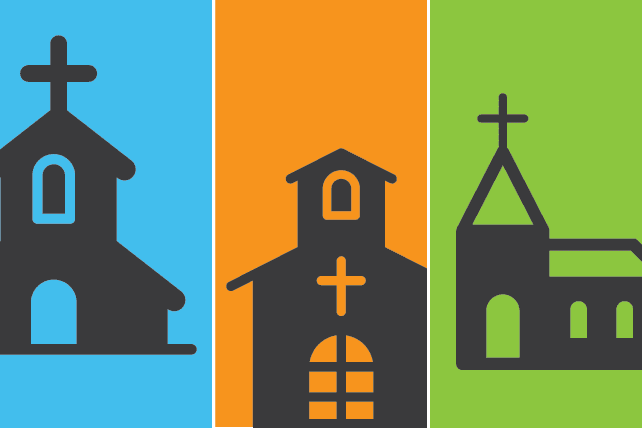What Does It Mean for a Church to Love Its Neighbor Right Now (During a pandemic)?
I’ve come across comments from certain church leaders saying things along the lines of, “The church should do [fill in the blank] as an act of love for neighbor.”
While I appreciate the prophetic posture of these comments, I can’t help but feel that it’s reducing the complexity of our current context and the church’s response to see through an unhelpful tunnel vision.
In order to broaden the conversation so that we see it more holistically, imagine the following:
Imagine there are three churches residing in one city.
These three churches share a lot in common. They are the same in size, staffing, and even share the same doctrinal statement. Additionally, the posture of these churches has been to love their neighbors well during this pandemic.
However, the way these churches have decided to love their neighbors look different from one another.
Church 1 has decided to love their neighbors by taking the virus and only the virus seriously. Therefore, gatherings have been limited or suspended altogether so as to remove the potential of transmission.
Church 2 has also decided to love their neighbors. But this church has decided to love their neighbors by taking the effects and implications of the virus more seriously than the virus itself. This church, therefore, continues to do what they have been doing pre-pandemic because they are convinced they’re essential to the wellbeing of people’s inner lives.
Then there’s Church 3. Church 3 is attempting to love their neighbors by taking both equally seriously. So while the church gathers for worship with precautions and wisdom, the church is also engaging the city to give aid to those who are vulnerable to the virus and its effects.
So which church is best loving its neighbor? While an argument may be made for each church, I believe church 3 is loving their neighbors best for the following reasons:
1. Human beings have biological needs and more.
While the physical effects of the virus are serious and must be taken seriously, it’s also true that human beings are mental, emotional, and relational beings. Therefore, the effects of the virus (ex. the rise of mental health issues, depression, suicide, etc.), which have been documented, must also be taken seriously.
In a paradoxical way, to reduce the totality of human need to that of mere biology would be dehumanizing. It would actually be unloving to reduce a person’s welfare to that of mere flesh and bones. In order to elevate the status of a human to that of an image-bearer, we must reconcile the multi-dimensions of a person - body, and spirit.
This is where Church 1, in emphasizing only the virus, can lose sight of the whole person, whereas Church 2, in honoring the other aspects of a person, can lose sight of our biology. Church 3 accurately assesses the multi-dimensional reality of a human being.
2. The Church must love in word and more.
To love our neighbors is to be invited to speak and act. Yes, it’s talking, but it also requires action.
Let’s apply this to church gatherings: While the decision to not gather is certainly an action that comes at a cost, one could say the same thing about gathering with safety precautions. In some ways, aren’t the extra steps of implementing safety precautions much more action-oriented than simply not having in-person services? Implementation is much more complex than cancellation.
But let’s side-step the church gathering conversation. Loving our neighbors should transcend the decision for a church to gather or not. Apart from the service, there should be other tangible ways in which the church is practically servings its neighborhood and city. From the devastating effects of the virus and its implications in assisted living facilities, to the struggling single mom, and the toll it takes on healthcare workers and educators, there are many vulnerable people in our cities who need practical neighborly love.
A church is not off the hook from God’s mandate by a decision to have an in-person service or not. Church 1 hasn’t fulfilled its mandate because it’s not gathering in the name of love. Church 2 hasn’t fulfilled its mandate simply because they’re putting on a worship service. Love for neighbor is intentional, practical, costly, and ongoing.
Conclusion
J.D Greear (Summit Church) has it right when he tweeted, “COVID is real. So are the devastating effects of isolation, loneliness and the inability to make life work. Both should be taken seriously. We have to keep these things in tension.”
And it is into this tension that I believe our churches are invited into.
Church 3 is not a perfect church. Church 3 is going to make some mistakes. Church 3 will appear paradoxical from the outside and its staff will be stretched. But church 3 is not marked by convenience or expediency.
And I wonder if this is the church that God is asking us to strive to be, a church that does all it can to love its neighbors in word and deed.
